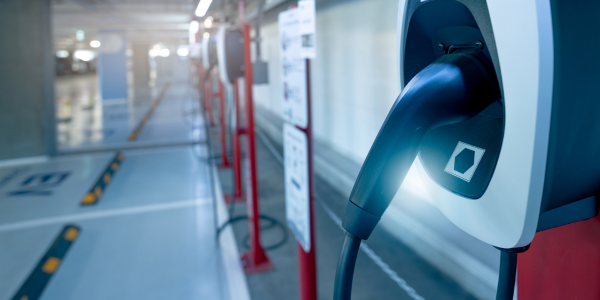Are you considering investing in an Electric Vehicle (EV) charging station for your business? If so, then you are on the right track! Not only will this move highlight your business as an environmentally responsible one, but it can also be a great marketing strategy aimed at attracting EV owners as your potential customers.
However, several things need to be considered before you choose a charging station that is most suitable for your business. Some primary considerations include the charging speed, infrastructure setup costs, and your long-term goals.
In this blog post, we will discuss the several types of EV charging stations, their advantages, and disadvantages, who they are suitable for, and help you make an informed decision about the charging station you choose for your business.
Level 2 AC Charging: Level 2 AC charging is the most common type found in public charging. This type of charging provides power at 240 volts and can deliver up to 25 miles of driving range per hour of charging. This charging station is slower than DC fast charging, but its infrastructure setup cost is lower and is usually found in places where vehicles are parked for extended periods, such as offices, retail stores, and hotels.
Level 2 AC charging stations are easy to install and maintain, and the charging connectors can be either hard-wired or provided with a standard plug. They are also capable of providing a seamless experience for EV owners who have charging applications installed on their smartphones.
DC Fast Charging:
DC fast charging is a type of charging that provides higher-speed charging, significantly reducing the charge time to 30 minutes or less. DC charging requires more complex infrastructure and specialized equipment and is commonly found along highways or major routes.
DC fast charging stations are much more expensive in terms of installation and maintenance costs than Level 2 AC charging stations. They also require more technical knowledge to handle, and often, additional equipment must be added to an existing electrical system to support a DC fast charging station.
Combining Both Types:
While there are pros and cons to each type of EV charging station, most businesses will benefit from combining both types of stations. Level 2 AC charging is ideal for areas where EVs park for an extended period, while DC fast charging is suitable for areas where drivers need quick charging, such as along highways or major routes.
Having different charging capacities also means that EV owners can choose the type that is appropriate for their needs. For example, a driver can use their Level 2 AC station to top up their battery while working, shopping, or dining out. Still, if they need a quick charge to finish their trip, they can use the DC fast charging station.
Purchasing an EV charging station for your business can help you attract new customers, support sustainability, and future-proof your business. However, deciding between the two types of charging stations is crucial to getting the right fit for your business. Consider your target audience, budget constraints, and long-term goals before deciding. In most cases, a combination of Level 2 AC charging and DC fast charging stations provides the most suitable solution. Contact a professional EV charging station installer today to get started.
